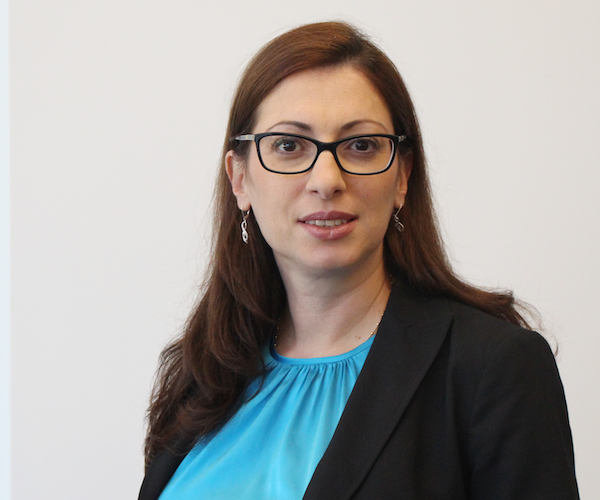Pjesivac
Dr. Ivanka Pjesivac

About: Dr. Pjesivac teaches undergraduate and graduate courses in digital storytelling, public opinion, and international communication. She studies international and cross-cultural communication, media trust and credibility, and effects of digital news content.
Education
- Ph.D., Communication and Information, University of Tennessee, Knoxville
- M.S., Communication and Information: Journalism and Electronic Media, University of Tennessee, Knoxville
- Bachelor’s Degree, French Language and Literature, University of Belgrade, Serbia
Research Interests and Activities
Dr. Pjesivac’s research focuses on international and cross-cultural communication, media trust and credibility, and effects of digital news content. Within the realm of international and cross-cultural studies, Dr. Pjesivac has mainly studied the roles of cultural contexts in journalism processes, as well as the relationship between political regimes and media systems. Her second research area has examined the factors and processes that affect news credibility and trust across media platforms and national borders. In the area of digital news processing, she has combined design and cognitive variables and tested their impact on information recall, comprehension, and visual attention to information graphics used in news. Recent research efforts include emotional and cognitive effects of immersive journalism, as well as the effects of media messages used in health and science communication. Dr. Pjesivac has presented her research at national and international conferences, winning the awards for top papers from ICA, AEJMC, and BEA. In 2017, with her co-author Grace Ahn, she was named AEJMC Emerging Scholar for their study on immersive journalism. In 2018, Dr. Pjesivac received a fellowship from the Willson Center for Humanities and Arts at the University of Georgia for participation in Berlin Seminar in Transnational European Studies. Her research was published or accepted for publication in journals such as Journalism: Theory, practice, and criticism, Journalism and Mass Communication Quarterly, Mass Communication and Society, Journalism Studies, Journal of Broadcasting and Electronic Media, Health Communication, Journalism and Mass Communication Educator, Journalism Practice, Newspaper Research Journal, International Communication Gazette, The Journal of International Communication, Visual Communication Quarterly, Electronic News, Global Media and Communication, Surveillance and Society. PLoS ONE, and International Communication Research Journal. Her doctoral dissertation was the finalist for the AEJMC Nafziger-White-Salwen Dissertation Award and the winner of the Outstanding Dissertation Award from the College of Communication and Information at the University of Tennessee.
Teaching Specialties
Dr. Pjesivac's teaching specialties include undergraduate and graduate courses in digital storytelling, public opinion, international communication and broadcast reporting.
Experience
Prior to receiving her Ph.D., Dr. Pjesivac worked for nearly a decade at the news department of Radio-Television of Serbia (RTS) in Belgrade, Serbia. Her career at RTS included reporting news about political, foreign affairs, and war crimes issues. She covered most of the significant political events in Serbia from 2003 to 2007 and was RTS’s permanent correspondent from the International Criminal Tribunal for the Former Yugoslavia (ICTY) in The Hague, the Netherlands. During her journalistic career, she pursued several professional development programs in France, Switzerland, and the United States, and collaborated with CNN on stories concerning Serbia. During her work at the University of Tennessee, Knoxville, Pjesivac also had a position on a DataONE (Data Observation Network for Earth) research team, where she has conducted multinational survey research and analysis for the Usability and Assessment Working Group of the world-wide project for scientific data archiving.
Awards and Fellowships
Dr. Pjesivac’s research efforts have been awarded several times:
- April 2019: Top Paper 1st place Open Paper Category – News Division of the Broadcast Education Association (BEA)
- May – June 2018: Fellow – Berlin Seminar in Transnational European Studies; Willson Center for Humanities and Arts at the University of Georgia and Department of German and Russian Languages and Literatures and the Nanovic Institute for European Studies at the University of Notre Dame
- August 2017: Kopenhaver fellow - Lillian Lodge Kopenhaver Center for Advancement of Women in Communication at the Association for Education in Journalism and Mass Communication (AEJMC) annual conference in Chicago, IL.
- May 2017: Top faculty paper – Visual Communication Studies Division of the International Communication Association (ICA)
- 2017: Grant - Online News Association Challenge Fund for Journalism Innovation Grant for the project “Virtual Water Infrastructure Crisis” : Co-principal investigator
- 2017: Grant - Kappa Tau Alpha Chapter Adviser Research Grant: Principal investigator
- 2017: Grant - Association for Education in Journalism and Mass Communication (AEJMC) Emerging Scholar Grant: “Virtual Reality Journalism: Emotions and News Credibility” : Principal investigator
- August 2015: Finalist (top 4) for the AEJMC Nafziger-White-Salwen Dissertation Award
- August 2015: Top faculty paper (second place) - International Communication Division of the Association for Education in Journalism and Mass Communication (AEJMC)
- April 2015: Outstanding Dissertation Award, College of Communication and Information, University of Tennessee, Knoxville
- 2013: Two grants for dissertation research: Principal investigator
- 2012, 2013: Two scholarships for pursuing a career in international communication
- April 2013: University of Tennessee Chancellor’s Award for Extraordinary Professional Promise
- April 2013: Best Debut Paper (second place) – News Division of the Broadcast Education Association (BEA)
- August 2012: Research Award – Kappa Tau Alpha, National Honor Society
- August 2012: Top student paper (first place) – International Communication Division of the Association for Education in Journalism and Mass Communication (AEJMC)
- Spring 2012: Outstanding Graduate Student Research Award, College of Communication and Information, University of Tennessee, Knoxville
- 2010-2012: Two scholarships for graduate studies
